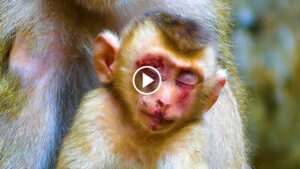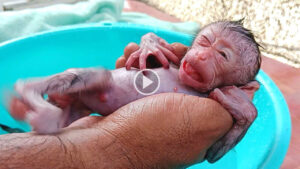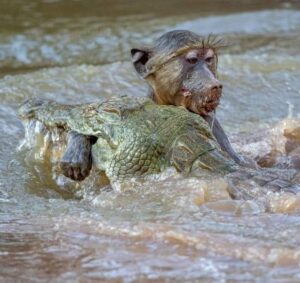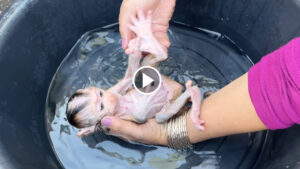When a newborn baby monkey refuses to drink milk, it is a cause for concern, as proper nutrition is crucial for its growth and development. Here are several steps you can take to address this issue:
Observe and Assess
- Monitor Behavior: Closely observe the monkey’s behavior to determine if it is displaying signs of illness or discomfort. Look for symptoms such as lethargy, diarrhea, vomiting, or respiratory issues.
- Check Environment: Ensure that the environment is clean, warm, and stress-free. Stress can cause a baby monkey to refuse milk.
Consult a Veterinarian
- Seek Professional Advice: Consult a veterinarian who specializes in primates. They can perform a thorough health check to rule out any medical issues.
- Diagnostic Tests: The vet may recommend diagnostic tests to check for infections, congenital defects, or other underlying health problems.
Alternative Feeding Methods
- Try Different Formulas: If the monkey refuses one type of milk, try different formulas specifically designed for primates. Sometimes a different taste or consistency can make a difference.
- Use a Feeding Syringe: In cases where the baby monkey is too weak or unwilling to suckle, a feeding syringe or dropper can be used to administer milk. This method ensures that the monkey receives essential nutrients until it can feed on its own.
Encouraging Feeding
- Create a Calm Feeding Environment: Reduce noise and disturbances during feeding times to create a calm and safe atmosphere for the baby monkey.
- Warm the Milk: Make sure the milk is at an appropriate temperature, as baby monkeys are more likely to accept warm milk.
Hydration and Nutrition
- Ensure Hydration: If the baby monkey is refusing milk, it is crucial to ensure it stays hydrated. Offer small amounts of electrolyte solutions recommended by a veterinarian.
- Supplement with Nutrients: In consultation with the vet, consider nutritional supplements to provide essential vitamins and minerals until regular feeding resumes.
Gradual Transition
- Introduce Solid Foods: As the baby monkey grows, gradually introduce soft, solid foods suitable for its age and species. This can help if the refusal of milk persists.
Regular Monitoring
- Track Progress: Keep a detailed record of the monkey’s feeding habits, weight, and overall health. Regular monitoring will help you and the veterinarian make informed decisions about its care.
In summary, addressing a newborn baby monkey’s refusal to drink milk involves a combination of careful observation, veterinary consultation, and adaptive feeding techniques. Ensuring the monkey’s environment is stress-free and providing alternative feeding methods are essential steps in promoting its health and development.








